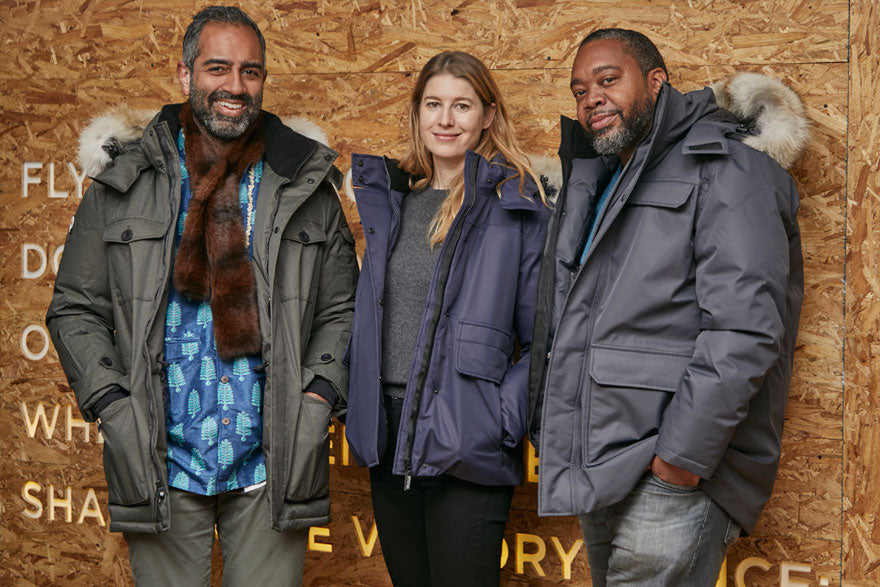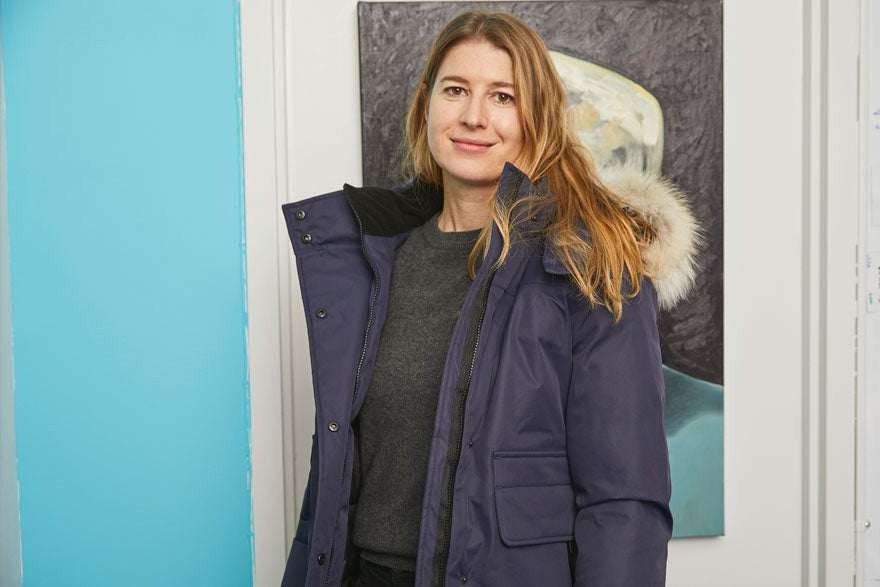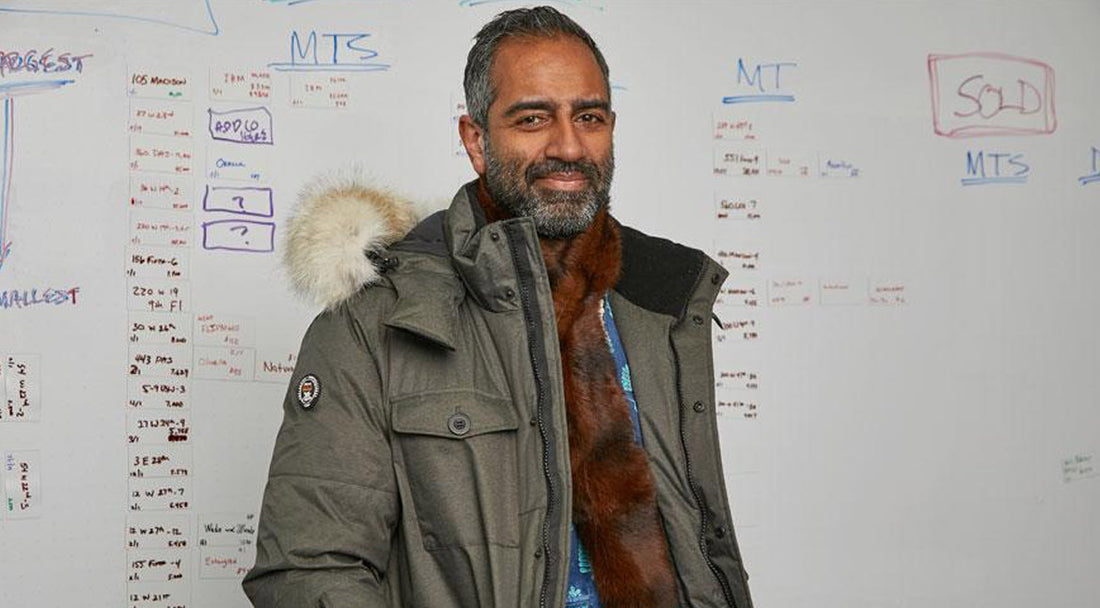It’s an understatement to call Amol Sarva a technology entrepreneur. Sure he’s co-founded several startups, including Virgin Mobile USA, Peek, Halo Neuroscience, and Knotable. And after raising more $100 million from investors, his most recent venture Knotel, which offers flexible and custom office spaces, tripled its worldwide footprint in 2018, growing 318% from 30 to 100 locations and 600,000 square feet to 2 million.
But Sarva’s no one-trick pony. He has a Ph.D. in cognitive science from Stanford University and an undergraduate degree from Columbia, where he sometimes teaches when not teaching "Beginner Philosophy" to 4-6 year olds at The Queens Paideia School.
Not only successful in academia and the business world, he’s also an accomplished creative, having built a building in Queens, created a well-respected blog, written a kids book and taken a photograph that’s in the Museum of Modern Art's permanent collection.
You wouldn’t think he has time, but he also serves as a mentor to several startup programs and has a family-run angel fund that’s aided over 50 startups. Here he outlines some of his key business growth strategies that have made him not only one of America’s most visionary entrepreneurs, but also one of the country’s most diverse thinkers.

BE YOURSELF, PUSH YOURSELF
In the world of entrepreneurs and ultra-successful businessmen and women, you hear about rules for people who want to be more productive—get up at 5 a.m., only do email twice a day, make your bed, turn off your phone for an hour, read for pleasure, don’t read for pleasure. The list goes on and on.
Sarva (seen here wearing the Triple F.A.T. Goose Eldridge in Olive) recommends not getting caught up on what other people do. Instead, he endorses finding your own path that suits who you are and what your goals are. “Do what works best for you to churn out the most productive hours in a day,” he advises. “Understand your own personality and how you can work with it; it’s like how no one diet can work for everyone.”
Speaking of food, he says there are different personality types that can either help or hinder your entrepreneurial acumen. “I think people start out as either chefs or cooks,” he explains. “You’re either born being good at experimenting in the kitchen and coming up with your own recipes, or you start working and executing the recipes of others.”
Sarva’s quick to point out that, just like in the restaurant business, cooks can become chefs. But that’s where hard work and perseverance comes in. “What changes a cook into a chef is a growth mindset and the grit to push through to succeed,” he says.
It goes without saying that Sarva, with his varied and extensive background, doesn’t get tunnel vision—focusing exclusively on one new thought, one industry or one market. “I’m constantly coming up with new ideas, I have a constant mix of products that I work on at once,” he says.
This sort of flexibility is a hallmark of good entrepreneurs, so much so that Sarva has built his most recent business venture on this concept. “Knotel is all about giving companies flexibility because we’re in an age of on-demand choices trying to fit into outdated and rigid industries,” he remarks.
“Once we unlock the industry of real estate and allow others to save on capex, we are able to catapult technology further together. Our customers resonate with this, and benefit from our deep understanding of this.”

KNOW YOUR MARKET
Ideas. Ideas. Ideas. That’s what comes to mind when we think of entrepreneurs, but it is the aforementioned concept of resonating with customers that is at the center of everything Sarva does and will allow you to heighten your business growth strategies.
That’s because those folks that are always coming up with something new, something we’ve never thought about or seen before, are focused on novelty instead functionality. And as Sarva notes, there’s a reason these ideas have never been put into action—there is no market for them.
“When a great team meets a lousy market, the market wins. When a lousy team meets a great market, the market wins,” he says. “When a great team meets a great market, something special happens.”
Therefore, if you’re looking to create something special, the key to a successful entrepreneurial venture lies less with the genius of the product and more with whether or not anyone wants it.
“If you address a market that really wants your product, you can screw up almost everything and you will still succeed,” he adds. “Conversely, if you’re really good at execution, but the market doesn’t want your product, you have no chance of winning.”
But this doesn’t mean that going half-assed into an untapped market will equal success. In fact, Sarva believes that it is better to take your time fine-tuning your product to achieve your goal rather than just throwing something out there just because no else is doing it. “The first startup to the market seldom matters,” he advises. “It’s the first startup to reach the right product-market fit that is the long-term winner.”

TEAMWORK MAKES THE DREAM WORK
Entrepreneur. The word has a very singular connotation leading one to imagine a solitary figure responsible for the entire success of whole corporations. But Sarva says this is rarely the case, and in fact this type of thinking can hold back even the best ideas and severely limit your business growth strategies.
“We are a country of immigrants, and if you believe in true innovation, then you will know that it takes all kinds of perspectives and people to constantly create new inventions,” he explains.
This doesn’t mean he allows himself to be susceptible to watering down his product to appease his backers or his partners. Instead, being open to new views allows him to remain flexible in both his own thinking and within the marketplace. “It’s important to have a holistic understanding of the market you’re trying to solve for, and adjust your vision only when employees/investors have fresh input about that market,” he says.
With such importance placed on the people he surrounds himself with, it’s not surprising that Sarva has a strategy about who he hires and when he brings them on board. “Hiring and org design is an art. For the first 20 or so employees, you have to hire generalists—people who can perform in a multitude of areas without complaining,” he explains. “They define the initial culture, are brand-ambassadors, and influence the next wave of hires.”
From there, Sarva expounds on when to add (or not add) more staff to optimize your business model and ramp up productivity. “You should only hire your second wave of employees after you hit the product-market fit,” he reveals. “This will speed up the growth of your company, and similarly, hiring before you hit product-market fit will only slow you down.” He adds, “Until you get to product-market fit, you want to 1) live as long as possible and 2) iterate as quickly as possible.”
And, in the current business climate, Sarva points out that the “team” a company relies on goes past the ones getting a paycheck and extends to the customers who are actually footing the bill.
“In the age of social and environmental scrutiny, public companies that act in the interest of social good appeal to the younger generations, and have shown to perform better,” he says. “However, it all boils down to whether leadership has innately good intentions or not. Announcing positive vanity metrics is not the same as having actual good metrics.”

IN THE END, STAY POSITIVE
We’ve all seen the statistics. Depending on what survey you look at the start up failure rate can be as high as 90 percent. Not something that instills a lot of confidence or encouragement in even those with the rosiest of outlooks.
But Sarva contends that is why an optimistic viewpoint is essential to achieving your goals. “There’s no such thing as failure. You either succeed or you learn,” he asserts. “If you fall down, you have to find the drive to start again, and use your past learnings to propel yourself further.”

